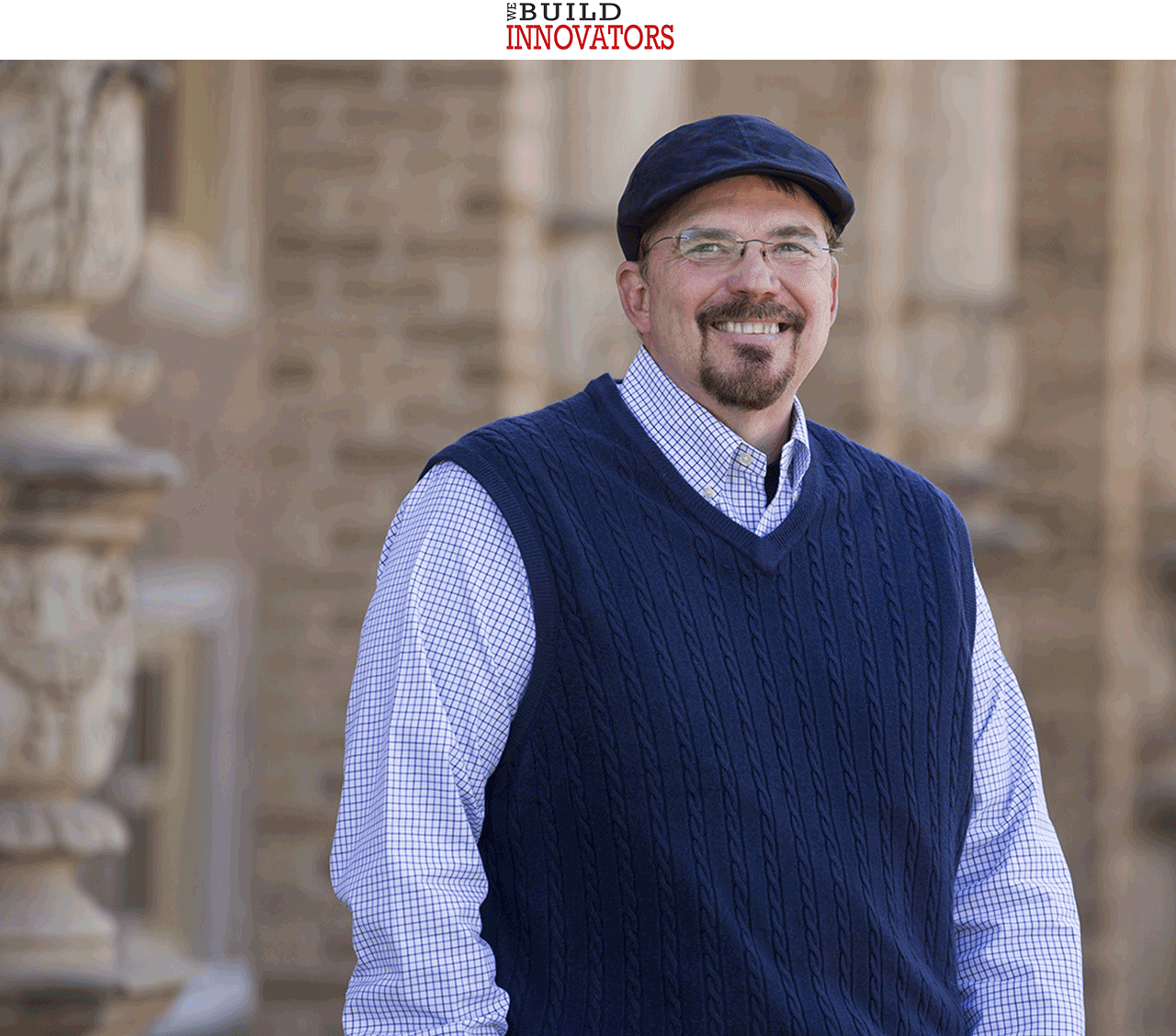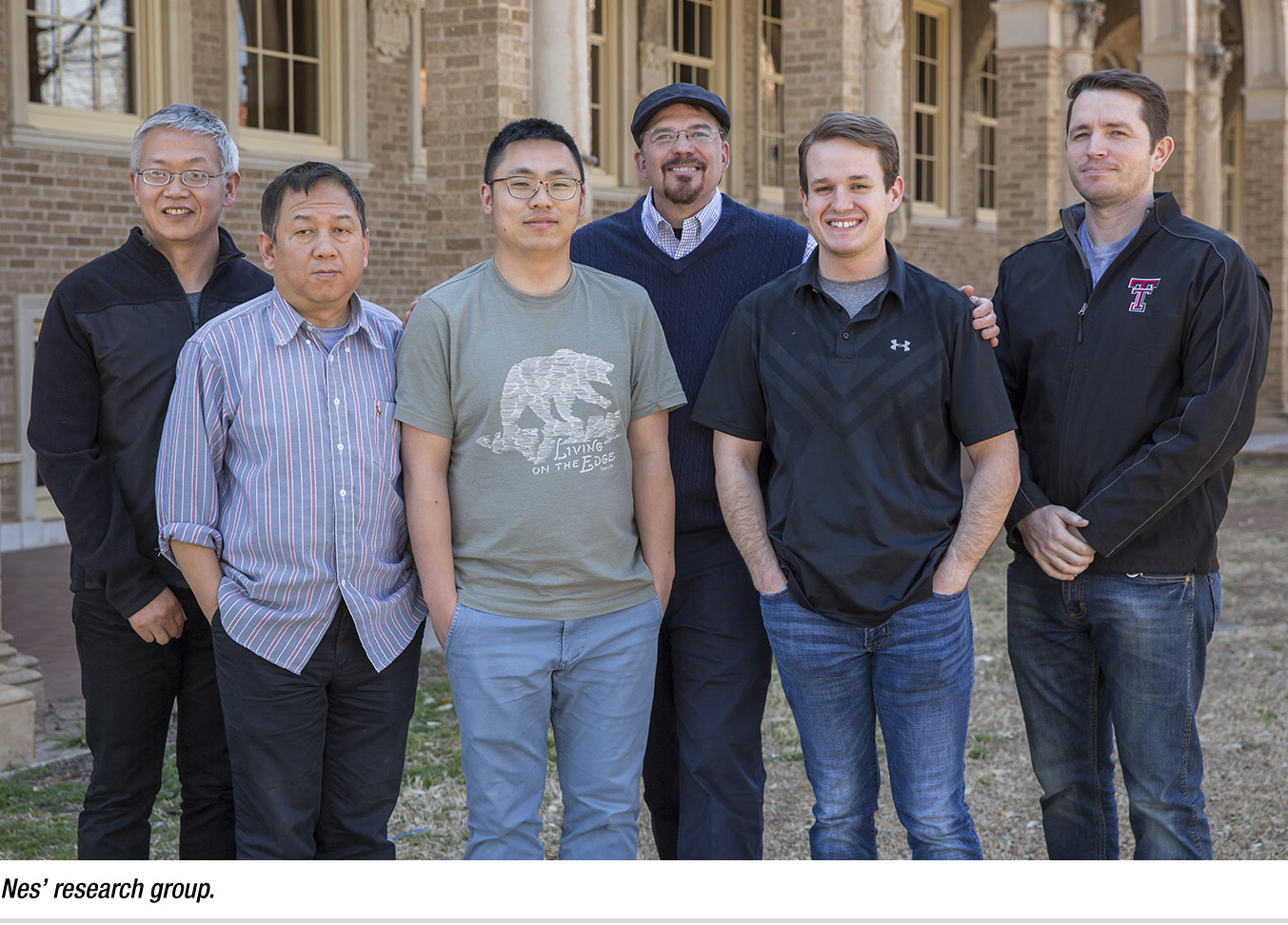2019 Schroepfer Medal

Horn Professor W. David Nes to Receive Biochemistry Award
Written by Toni Salama
It's early 1983, and two men are at a workbench in a government lab on the West Coast. They've been hard at their research six weeks straight, intent on providing clear evidence of a particular chemical pathway in a particular plant, and now they're there. They've done it.
That's when Thomas Bach knew he was watching a rising star in David Nes. Bach's memory isn't just of the scientific breakthrough but the humor of the scene itself.
"A funny remembrance worth mentioning is our sitting side-by-side in darkness at the bench, with green lamps on our heads, to work up etiolated wheat seedlings for incorporation and other experiments, as plants don't 'see' green light," said Bach, now professor emeritus at the University of Strasbourg, France.
Fast-forward to today, and W. David Nes, now a Paul Whitfield Horn Distinguished Professor of Chemistry & Biochemistry at Texas Tech University, stands ready to receive the 2019 Schroepfer Medal from the American Oil Chemists' Society (AOCS) for his contributions to the field of steroid and sterol chemical research.
The award is named in honor of the late Dr. George J. Schroepfer, Jr., a Rice University department chair in biochemistry whose pioneering studies in cholesterol and oxysterol biosynthesis contributed to understanding the role of cholesterol in heart disease.
"This prestigious award is like the Nobel Prize in the field of steroid or sterol biochemistry," said Henry T. Nguyen, formerly a Paul Whitfield Horn Professor in the Department of Plant and Soil Science at Texas Tech and currently Curators' Distinguished Professor of Plant Sciences at the University of Missouri.
A Rewarding Journey
When he sat with Bach at that bench 36 years ago, Nes was a research chemist at the U.S. Department of Agriculture's Western Regional Research Center, where he led a small group of scientists studying natural products. Bach joined the group as a visiting scholar, and their work together was published in Proceedings of The Royal Society.
In the years since, much of Nes' research has targeted sterol biosynthesis pathways and sterol catalysts. More specifically, he was chosen for the Schroepfer Medal for his focus on the chemistry of sterol diversity and mechanistic analysis and inhibition of crucial enzymes affecting ergosterol biosynthesis in pathogenic protozoa and fungi.
"My quest to understand the molecule cholesterol has represented a long and highly rewarding journey," Nes said. "George Schroepfer's contributions to our understanding of sterol chemistry and biosynthesis had a great impact on medicine. To receive this award in his name is a great honor and privilege, and I thank my many colleagues for their nomination and support."

Nes can count approximately 200 peer-reviewed journal articles, one patent and eight edited books to his credit as one of the most-cited scientists in sterol research and one who is sought after on the lecture circuit. He has mentored more than 70 graduate students, post-doctoral fellows and visiting scientists. In addition to serving as a consultant to government and industry, he was named a fellow of the AOCS in 2014 and is program director in Molecular and Cellular Division/Biology at the National Science Foundation.
He describes his research as an interdisciplinary pursuit that has embraced an international cast of scientific collaborators.
While Nguyen was at Texas Tech, he and Nes began working together on the metabolic engineering of plant natural products with an emphasis on the sterol pathway. Nguyen said that research project continued even after he moved to the University of Missouri in 2002. Ultimately, their work bore fruit.
"We published a milestone paper in Plant Biotechnology Journal laying a foundation for genetic engineering of sterol in soybeans," Nguyen said.
In his letter recommending Nes for the award, Bach observed that Nes's work is impressive for its combination of organic chemistry and the refined analysis of steroids and their derivatives – merged with a deep understanding of biological processes in plants, microorganisms and, most recently, in parasites.
But as Bach noted, it took more than pure science to make Nes a perfect candidate for the Schroepfer Medal.
"Professor Nes is not only known as a very productive scientist and teacher at the university level, but is instrumental in all that concerns organization and administration," Bach said. "I would also stress his being quite successful in attracting research money – not an easy task nowadays, even in the U.S."
Nguyen called him an excellent teacher and the best research scholar among the many colleagues he has known over his 36-year academic career.
A Look Ahead
Over the past three years, Nes and Nguyen have conducted research funded by the Project Revolution at Texas Tech in partnership with Bayer Crop Science (now BASF) , Nguyen said. Their goal, as Nguyen described it, is to develop a new strategy for pathogen and insect resistance in crop plants.
Nes said his current interest is in the Department of Chemistry & Biochemistry's National Institutes of Health-funded studies to develop phyla-specific anti-amoeba drugs that target enzymes absent from the human genome but specific to Acanthamoeba, an organism responsible for blinding keratitis, and Naegleria steroidogenesis. Naegleria is known as the brain-eating amoeba.
In what could be thought of as a lead-up to the Schroepfer award, the chemical journal Molecules published a special issue in honor of Nes' 65th birthday. Five of the issue's 16 contributors are Nes's former students who now hold faculty positions in chemistry departments around the country.
Nes will receive the Schroepfer Medal at the AOCS annual meeting May 5-9 in St. Louis. In addition to receiving a bronze medal and an honorarium, he also will present an award lecture. The title of Nes' talk is "Chemical biology of phyla-specific antimetabolites functioning as suicide inhibitors."
College of Arts & Sciences
-
Address
Texas Tech University, Box 41034, Lubbock, TX 79409-1034 -
Phone
806.742.3831 -
Email
arts-and-sciences@ttu.edu
